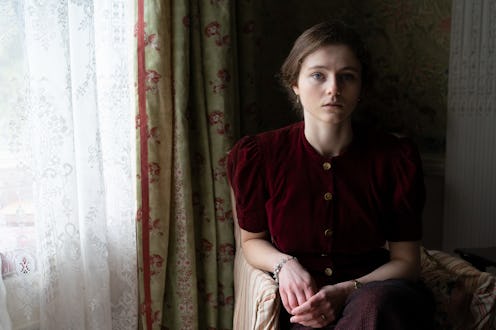TV & Movies
The Life After Life Book Ending Is As Frustrating As You’d Expect
Ursula’s “happy ending” is complex.

The long-awaited BBC adaptation of Kate Atkinson’s Life After Life is finally here, and sees Thomasin McKenzie star as Ursula Todd, the girl who has lived a dozen lives. Born to Sylvie and Hugh (played by Sian Clifford and James McArdle), Ursula’s first “life” comes to an abrupt end when she dies before even drawing her first breath. But that same night, she is reborn and survives. This, it turns out, happens again and again, giving Ursula the opportunity to continuously be reincarnated and experience different alterations. This ultimately takes her through both World Wars and even an encounter with Adolf Hitler. But how does Atkinson’s novel end? The answer is complex.
Technically, you could say that Life After Life has no ending, Ursula’s many lives act as mini-stories. But Atkinson does eventually provide an ending – of sorts – and thankfully it’s an optimistic one. Granted, a lot of awful things happen to Ursula before she reaches her happy ending. Speaking to NPR in 2013, Atkinson agreed that Ursula “dies a lot in the first third of the book” – spoiler: there’s numerous bouts of the Spanish flu. But by the time she reaches the Blitz, Ursula experiences “a whole cascade of horrible deaths” including that of one of her younger brothers, Teddy, whose plane goes down during World War II.
By this point, Ursula has managed to survive up until 1967. But as her past lives start blurring together, she dies and is reborn back in 1910. Aptly titled “The End of the Beginning”, chapter 26 marks the lead-up to Ursula experiencing more alterations of her life. At one point, she experiences so much deja-vu of the lives she’s already lived that she’s institutionalised and ends up jumping out the attic window. (Hectic, right?)
In the final chapter of the book, Ursula is reborn and eventually lives to the point where Teddy’s plane is shot down. However, this time he survives, without Ursula doing anything to alter the outcome, so when they finally meet after the incident she’s understandably afraid the moment will instantaneously end. But it doesn’t. It’s at this point she realises her reality is “real” and “true”, which is where Atkins’ decides to end the novel.
There’s discussion as to whether or not this actually marks the ending of Ursula’s constant reincarnation, but leaving it open to interpretation does mean you can make up your own mind on that front.